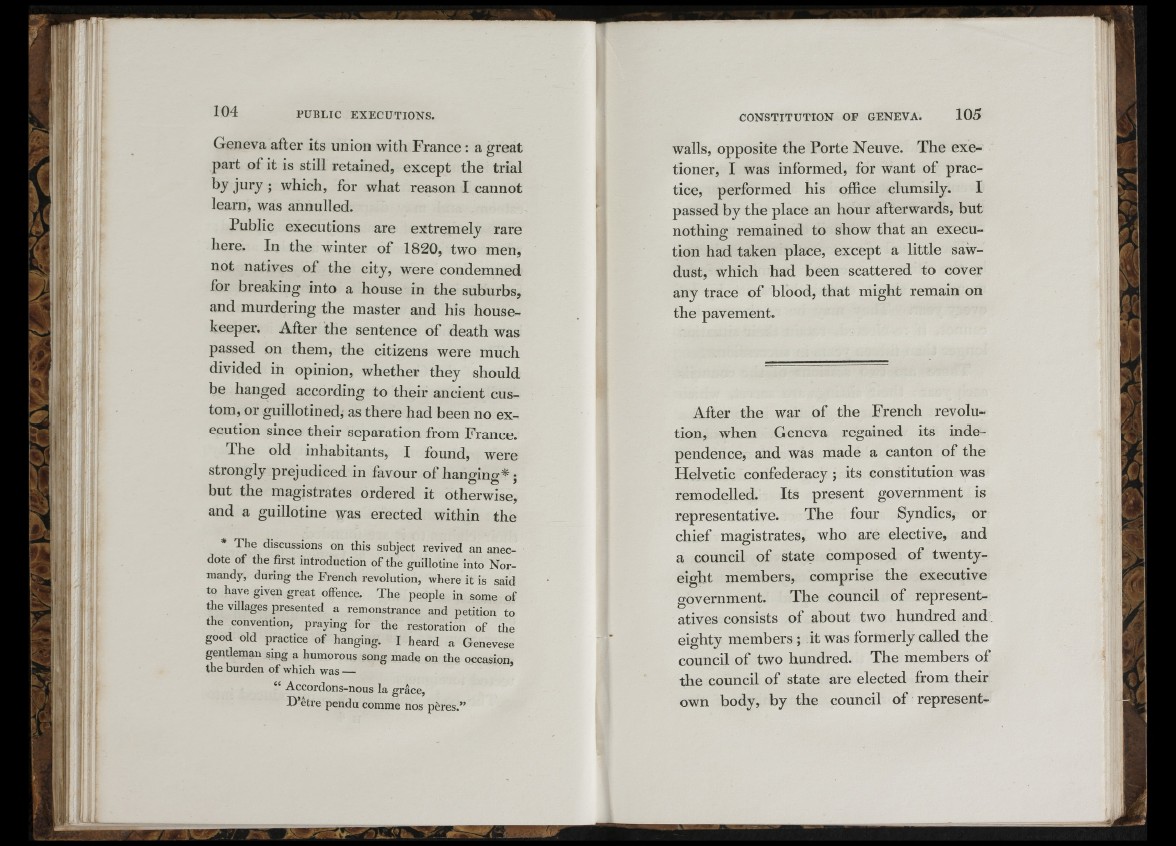
iJBl
;á'
: :í«S
te
!J
Geneva after its union with France : a great
part of it is still retained, except the trial
j which, for what reason I cannot
learn, was annulled.
Public executions are extremely rare
here. In the winter of 1820, two men,
not natives of the city, were condemned
for breaking into a house in the suburbs,
and murdering the master and his housekeeper.
After the sentence of death was
passed on them, the citizens were much
divided in opinion, whether they should
be hanged according to their ancient custom,
or guillotined, as there had been no execution
since their separation from France.
The old inhabitants, I found, were
strongly prejudiced in favour of hanging* ;
but the magistrates ordered it otherwise,
and a guillotine was erected within the
The discussions on this subject revived an anecdote
of the first introduction of the guillotine into Normandy,
during the French revolution, where it is said
to have given great offence. The people in some of
the villages presented a remonstrance and petition to
the convention, praying for the restoration of the
good old practice of hanging. I heard a Genevese
gentleman sing a humorous song made on the occasion,
the burden of which was__
“ Accordons-nous la grâce.
D’etre pendu comme nos pères.”
walls, opposite the Porte Neuve. The exe-
tioner, I was informed, for want of practice,
performed his office clumsily. I
passed by the place an hour afterwards, but
nothing remained to show th a t an execution
had taken place, except a little sawdust,
which had been scattered to cover
any trace of blood, that might remain on
the pavement.
After the war of the French revolution,
when Geneva regained its independence,
and was made a canton of the
Helvetic confederacy ; its constitution was
remodelled. Its present government is
representative. The four Syndics, or
chief magistrates, who are elective, and
a council of state composed of twenty-
eight members, comprise the executive
government. The council of representatives
consists of about two hundred a n d ,
eighty members; it was formerly called the
council of two hundred. The members o f
the council of state are elected from their
own body, by the council o f represent